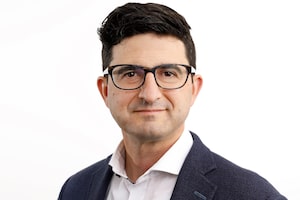One of Canada’s most accomplished biotechnology entrepreneurs, Clarissa Desjardins, has raised US$50-million for her latest startup, which uses machine learning and computer simulations to find treatments for rare diseases.
Congruence Therapeutics Inc. said Tuesday the funding was led by Canadian venture capital firm Amplitude Ventures and Fonds de solidarité FTQ, and also backed by Lumira Ventures, Investissement Quebec, OrbiMed Advisors and Driehaus Capital Management.
Many of the backers are well acquainted with Ms. Desjardins: Amplitude is a spinout of Business Development Bank of Canada’s venture capital arm, which was an early backer of her last company, Clementia Pharmaceuticals Inc. BDC made a $175-million profit - its biggest in the biotechnology space - when Clementia was sold to France’s Ipsen SA for US$1.3-billion in 2019.
“Any time we have the opportunity to work with an exceptional individual like Clarissa, obviously you want to be in a position to support her,” said Amplitude co-founder and partner Jean-François Pariseau, who led the Clementia investment at BDC. Amplitude’s decision to invest in Congruence, he said, “was very fast.”
Orbimed, Driehaus and the Fonds de solidarité also invested in Clementia, which developed a treatment for a debilitating rare disease that turns muscles, tendons and joints into bone, trapping its victims in a second skeleton. The drug was approved last month for sale in this country by Health Canada and Ipsen is pursuing similar approvals in the United States after hitting regulatory delays. In addition, Amplitude venture partner Nancy Harrison was a director at Caprion Pharmaceuticals, one of Ms. Desjardins’ earlier startups, co-founded with her husband, fellow biotech entrepreneur Lloyd Segal, in 1998.
“This is one of Canada’s leading entrepreneurs,” Ms. Harrison said in an interview. “She has the science smarts, the company-building expertise and is an amazing operator. You can’t find much better than that. We’re happy to help her with her new vision.”
Ms. Desjardins was a reluctant seller of Clementia, her third startup, which went public on the Nasdaq Stock Market in 2017 and sold two years later after receiving an unsolicited offer from Ipsen. Although she supported the deal as a director, “for me personally it was bittersweet … and a loss, in a sense, of my baby,” she said in an interview.
After leaving Ipsen at the end of 2019 she decided to start another biotechnology company, and “my heart just kept bringing me back to rare diseases,” she said. “There is no more admirable group of people than those in the rare disease community for the way they handle the challenges fate has thrown at them. When you wake up to devote yourself to these causes you never wonder whether it’s worth your while. There’s so much unmet medical need and opportunity to rapidly make a big difference.”
After some research in 2020 she zeroed in on the opportunity to use artificial intelligence-driven computer simulations to identify novel molecules that could rescue mutant “misfolded” proteins in human cells that caused a range of rare monogenic diseases. These treatments, known as “pharmacological chaperones,” would bond to the mutant proteins, restoring their normal configurations so they could interact regularly with other proteins. Other companies have used the approach to develop treatments for cystic fibrosis and other rare diseases.
Congruence, which hasn’t yet disclosed its first disease target, will first use extensive computer simulation to conceive of and artificially test molecules it believes can successfully treat ailments in real world applications. By doing so it joins the hot area of biotechnology known as computational biology, which has drawn significant financing from investors keen to support efforts to use machine learning algorithms to seek out treatments for health conditions that have proven difficult for traditional pharmaceutical companies to develop. Other companies that use AI in this way include Recursion Pharmaceuticals and Canada’s Deep Genomics. “We’re at a time in science where the computational tools are starting to deliver answers that were complete mysteries just a few years ago,” said Ms. Desjardins, who got Congruence off the ground with $1-million of her own money.
But Congruence has a long way to go. After its computer simulations identify a potential drug there will be years of testing, first on animals and then humans, to determine if it is safe and effective. Ms. Desjardins must also build a team of biologists, chemists and pharmacologists to do the laboratory work. “The first part is building the algorithm and having data scientists, but you need to be rapidly moving to developing the scaffolding that will become” a drug candidate, Mr. Pariseau said. Ms. Harrison added Ms. Desjardins “is not interested in taking it slow but understanding, owning and dominating a space. She knows how to do that.”
Your time is valuable. Have the Top Business Headlines newsletter conveniently delivered to your inbox in the morning or evening. Sign up today.
 Sean Silcoff
Sean Silcoff